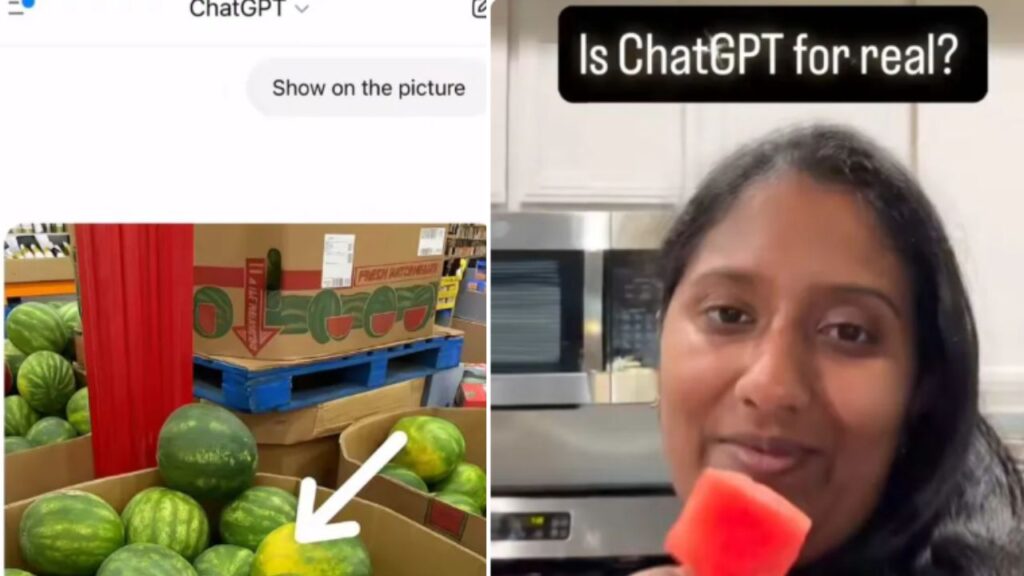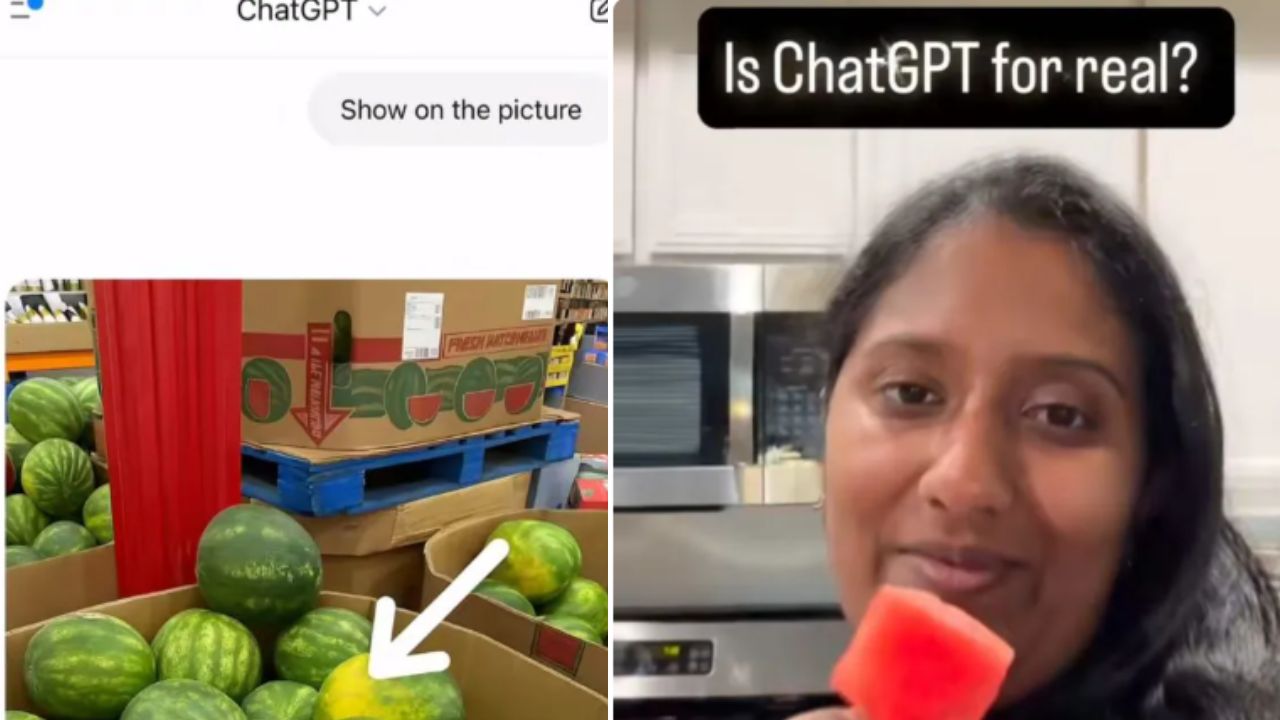In a quirky experiment blending technology with everyday life, an Indian woman recently turned to artificial intelligence for help with a rather unexpected task — choosing the perfect watermelon. Her request to ChatGPT, an AI tool known for answering complex queries and generating creative content, quickly became a viral talking point, sparking both amusement and debate across social media.
The Unusual Request
According to posts circulating on X (formerly Twitter) and Instagram, the woman shared that she was at a fruit market, overwhelmed by rows of watermelons that all looked the same. Instead of relying on the usual human techniques — tapping for a hollow sound, checking the sugar spots, or assessing weight — she decided to test if ChatGPT could make the choice for her.
She described the size, shape, and markings of several watermelons in detail to the AI and asked it to recommend which one was likely the sweetest.
ChatGPT’s Recommendation
The AI reportedly replied with a list of indicators to look for:
- Uniform shape — symmetrical watermelons are often more evenly ripe.
- Creamy yellow field spot — a sign of natural ripening.
- Deep, hollow sound when tapped — indicating juiciness.
- Dull, not shiny skin — suggesting full maturity.
Based on the descriptions the woman provided, ChatGPT recommended the “medium-sized, symmetrical watermelon with a creamy field spot and slightly dull skin.”
The Result That Sparked a Debate
The woman followed the AI’s suggestion, bought the watermelon, and later shared a video cutting it open. To her delight, it turned out to be bright red, juicy, and sweet. She praised ChatGPT for “beating human guesswork” in her case.
But that’s where the online division began.
Internet Reacts: Genius or Gimmick?
Some netizens called it a fascinating example of how AI can guide even the most mundane tasks. “First it replaced homework, now it’s replacing aunties at fruit stalls,” one user joked. Others argued that the result was pure coincidence and that human experience still trumps AI in such sensory-based decisions.
“ChatGPT can’t smell or feel a watermelon. It’s just giving you general advice you could Google,” wrote one skeptical commenter. Another countered, “But she asked it in real-time, got relevant tips, and applied them — that’s the point”
AI in Everyday Life

Experts note that while AI tools like ChatGPT can’t physically interact with objects, they can distill expert knowledge from countless sources and guide people in making informed decisions. “It’s not magic, it’s pattern-based knowledge,” explained a food technologist. “If the user can provide accurate descriptions, AI can increase the odds of a good choice — but it can’t guarantee perfection.”
Interestingly, this incident is part of a growing trend where people use AI for everyday decisions — from picking outfits and planning trips to suggesting recipes based on fridge leftovers.
The Bigger Picture
While this watermelon experiment was lighthearted, it opens up a larger conversation about how humans might increasingly rely on AI for real-time guidance. The divide lies between those who see AI as an empowering assistant and those wary of over-dependence on a tool that lacks sensory experience or human intuition.
Whether it was skill, luck, or just a sweet coincidence, the Indian woman’s AI-aided watermelon pick has become a viral case study of how technology is slipping into the smallest corners of our lives — sometimes with surprisingly delicious results.
